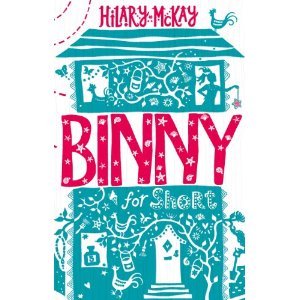And now we return to the subject of my newest comfort author, Elinor Lipman! Acquiring comfort authors as an adult can be difficult because there’s such a vast universe of books to read, and I have the internet as an endless recommendation machine, whereas young Jenny often checked out the same book from the library over and over again until it became as familiar as a teddy bear. But Elinor Lipman’s books were like a teddy bear right away, so I was very excited to see two — a new novel and a collection of essays — pop up on Netgalley earlier this year. Essays first!
Essays: I Can’t Complain: (All Too) Personal Essays
The essays in this book are divided into essays on family, essays on writing, essays from a column at the Boston Globe that Lipman wrote regularly, and essays about life since losing her husband. Of these, I enjoyed the writing ones probably the most. The ones about her family were affectionate and touching, particularly the essay about losing her husband to a “rare, untreatable, and fatal” form of dementia. Though the essay — like all of the essays in the collection — was short, Lipman said a lot about what it’s like to see someone you love fall victim to dementia.
Anyway her essays about writing were the ones I enjoyed most unreservedly. It’s fun to hear about the process creative artists go through to make their [whatever — novel, play, production, movie, etc]. Lipman talks about naming characters, about how finding the right name can make a previously fuzzy character snap into focus.
In any carton of manuscripts entered in a competition I am judging, the strong, young, sympathetic, attractive protagonists tend to be named Kate. Runner-up is Anne, Annie, Anna: old-fashioned yet modern, feminine yet strong. Kates and Annas can ride horses, drink, and change tires, but will still look beautiful in their understated wedding dresses, freckled shoulders gleaming at their beach nuptials.
Heeheehee. NB two of my favorite people in the universe are called Kate and Anna. But, see? How Elinor Lipman is charming and funny when writing about writing?
The Boston Globe columns were much my least favorite, so I won’t say as much about them. “May I Recommend”, Lipman notes, was the reason she was eased out of the column-writing rotation, and while that was probably a disproportionate response, and although I understood that Lipman meant to talk about parenthood being the right decision for her, I could see why people got annoyed:
What if we’d been the husband and wife in my cautionary tale, a true one, about a childless couple who stuck to their guns? They spearheaded a support group called Nonparents Anonymous and were quoted in the Boston Globe decades ago describing the freedom, the spontaneity, the money saved, the creativity nurtured, blah blah blah. Today I know through mutual friends that they are divorced. But not just divorced: divorced and furious. The ex-wife claims he ruined her life with his nonparental nonsense. He says it’s her own damn fault. She left town, postmenopausal, never to be heard from again. He’s single, eligible, and searching for a wife of childbearing age.
When I got to the end of the essay collection, I felt that these were not essays that needed to be collected. Some of them were quite good, but they were all magazine pieces, if that makes sense. They were designed to amuse you as you page through the New York Times or whatever; they weren’t meant to be read one after another. Or maybe I am just biased against reading tons of short things by one author all in one gulp; cf., I never read short story collections ever.
And now on to the book I enjoyed v.v. much, Lipman’s new novel, The View from Penthouse B.
Recent widow Gwen-Laura has moved in with her younger sister Margot following Margot’s very public, very scandalous divorce. Though they live in a penthouse Margot owns outright, they’re both struggling financially following the loss of their husbands to death and prison. To make ends meet, they take in a boarder called Anthony, who makes them cupcakes and gossips with them about their love lives and money-making potential. Margot’s ex gets out of prison and moves into the apartment downstairs from their penthouse, and Gwen contemplates starting a dating service for people who don’t necessarily want to have sex.
Of Lipman’s books, this is probably the one that’s the most like The Family Man, although The Family Man remains my favorite if only by virtue of being the first delightful Lipman surprise in my life. Anthony is a Thalia-like force in Gwen-Laura’s life, and Margot is the inevitable (I don’t mean that in a nasty way, I again emphasize that I love lovely Elinor Lipman) Elinor Lipman character who’s wacky and impractical and sort of annoying and flaky at times and sometimes the protagonists want them out of their lives but they are basically good-hearted.
Like The Family Man, The View from Penthouse B is about a group of people whose lives have room to get better, and do get better. They experience missteps and unhappiness along the way, and the futures they build for themselves are far from perfect. Although they have all been hurt by people they loved, they only improve their lots by being open to other people again. And because it is Elinor Lipman, that openness pays off in happiness dividends as the book goes on.
I basically have no complaints here. I want to reread some of Elinor Lipman’s backlist now. I shall read The Inn at Lake Devine because that one was especially lovely.
Note: I received these e-books from the publishers via NetGalley in exchange for an honest review.







